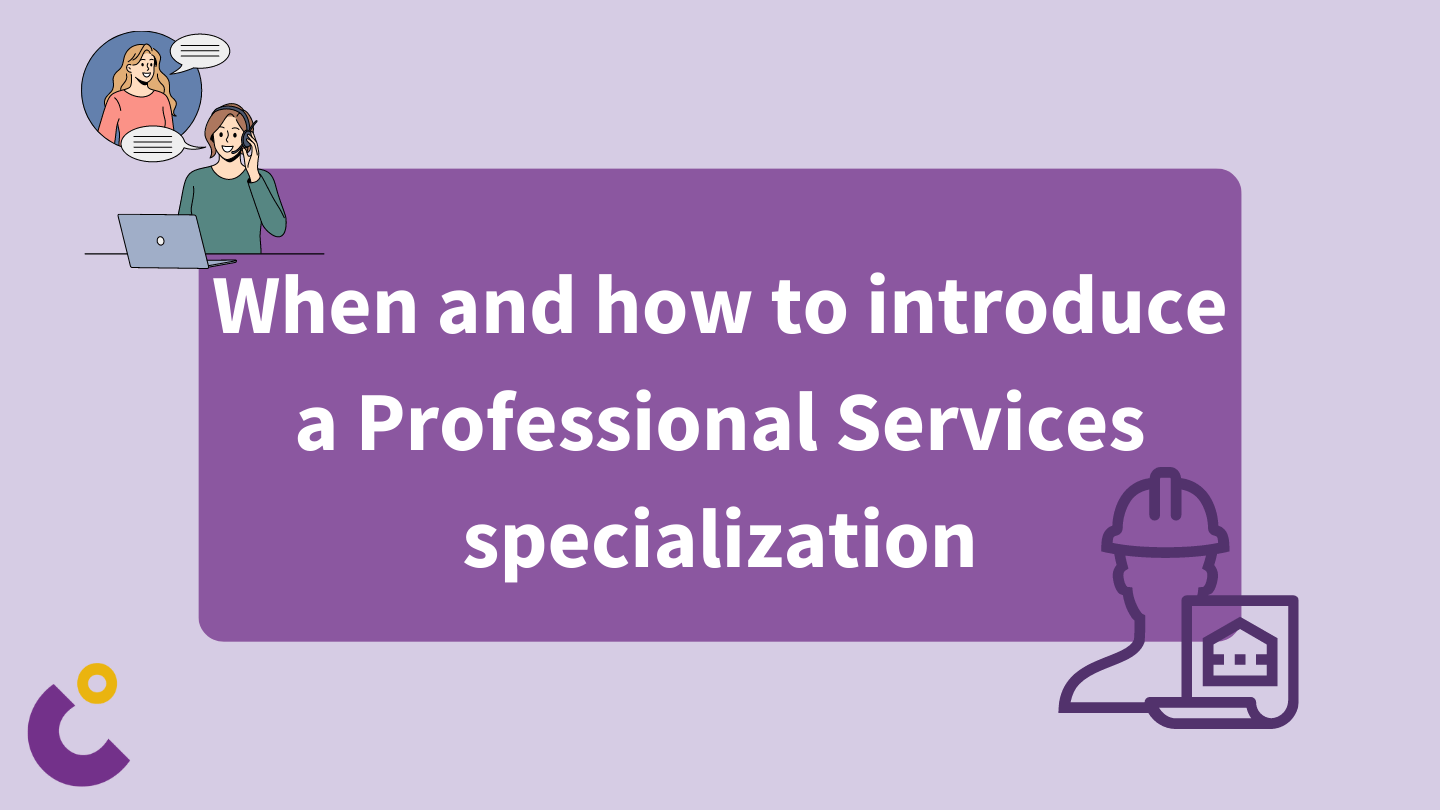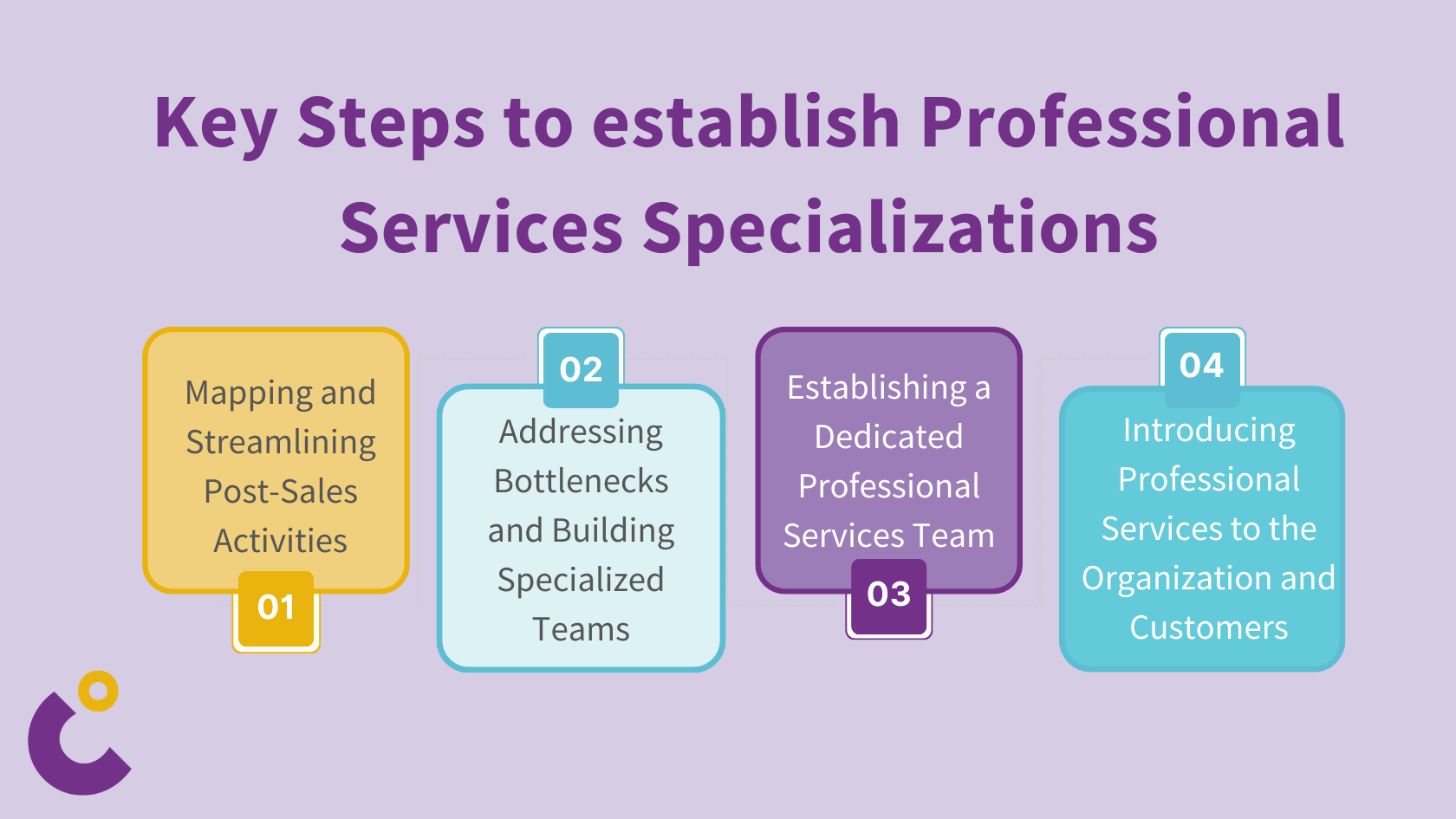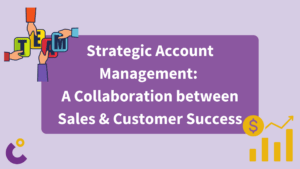

When and how to introduce a Professional Services specialization
When developing a strong post-sales team, there comes a point where introducing a new level of specialization becomes necessary to increase your customer centricity. This will allow you to streamline workflows, reduce multitasking, and optimize bandwidth. We want to guide you through the establishment of Professional Services (PS) within your post-sales team. Breaking out PS as its own function allows for increased specialization, enhanced customer experiences and revenue retention down the line. Eventually it adds value to your organization and customers alike.
Want an idea of how we do this? Look no further:
Mapping and Streamlining Post-Sales Activities
To embark on this journey of specialization, begin by mapping out all the post-sales activities within your team and identify the associated resources required for each activity. This comprehensive understanding of the customer journey map will allow you to arrange the activities in an order that ensures an efficient and smooth workflow.
Once you have a clear overview of the post-sales activities, take the time to evaluate the sequence in which they occur. Are there any dependencies or handoffs that could cause delays or confusion? By analyzing the workflow, you can identify potential bottlenecks and areas where breaking points might occur. This proactive approach allows you to address these issues early on and implement measures to prevent disruptions in the workflow.
Addressing Bottlenecks and Building Specialized Teams
Streamlining your post-sales process involves not only identifying bottlenecks but also taking steps to alleviate them. Consider leveraging automation or technology solutions to streamline repetitive or time-consuming tasks. By automating certain aspects of the workflow, you can free up your team’s time and resources to focus on more complex and value-added activities.
Furthermore, breaking down the workflow into distinct functional areas can facilitate better resource allocation and specialization within the team. Categorize the activities based on their nature and the skills required to execute them effectively. This segmentation allows you to assign tasks to individuals or teams with the relevant expertise, leading to improved efficiency and higher-quality outcomes.
As you identify areas within the post-sales process that require specialized knowledge or technical expertise, this is your sign to introduce a specialized Professional Services (PS) team. This team will focus on the initial activities associated with the (technical) implementation of your product in the customer’s ecosystem. By having a dedicated PS team, you ensure that these critical tasks are handled exclusively by experts who have the necessary skills and experience to deliver successful outcomes.
Establishing a Dedicated Professional Services Team
Building a Professional Services team involves carefully selecting individuals with the right skill set and domain knowledge. Look for team members who not only possess technical expertise but also have excellent communication and problem-solving skills. These qualities are crucial for effectively interacting with customers, understanding their unique requirements, and providing tailored solutions.
Once your PS team takes shape, it is essential to establish processes and workflows that ensure consistent and efficient execution of tasks. Have your PS team document their processes and best practices in a comprehensive and concise playbook. This playbook will serve as a valuable resource for training new team members, maintaining consistency across projects, and ensuring scalability as your business grows.
A strategic consideration when introducing a Professional Services team is to evaluate whether they will provide complementary services as part of your overall customer experience or if there is an opportunity to offer paid service packages that include implementation work. Align this decision with your business strategy and customer needs. Offering paid service packages can not only generate additional revenue but also demonstrate the value of your expertise and the commitment to ensuring a successful customer experience. For a deep dive into potential pricing strategies and ROI considerations, TechCrunch has a great article on “How should SaaS companies deliver and price professional services?”.
Introducing Professional Services to the Organization and Customers
Once your newly established Professional Services function is operating smoothly, it is time to introduce it to the rest of your organization and existing customer base. To create awareness and foster collaboration, facilitate knowledge sharing sessions between the PS team and other departments, such as sales and product development. This cross-functional collaboration ensures that the expertise and insights gained from customer implementations are shared throughout the organization, enabling continuous improvement.
When communicating the introduction of Professional Services to your customers, emphasize the value they bring in terms of specialized expertise and improved customer satisfaction. Highlight how the PS team’s deep understanding of your product and its implementation intricacies ensures a seamless transition from sales to implementation. Showcase successful case studies and customer testimonials to build trust and confidence in the capabilities of your Professional Services team.

Long story short…
Introducing a Professional Services specialization within your post-sales team is a strategic move that can significantly benefit your SaaS business. By mapping and streamlining post-sales activities, addressing bottlenecks, building specialized teams, and integrating documentation processes, you can enhance customer experiences and improve overall satisfaction. When introducing the Professional Services function to your organization and customers, emphasize the value they bring and their role in delivering specialized expertise.
With a dedicated team in place, your business will be well-positioned to provide exceptional customer service and drive long-term success. The establishment of a Professional Services team enables you to leverage specialized skills, optimize workflows, and enhance the customer experience. By continuously refining and expanding your Professional Services offerings, you can stay ahead of the competition and solidify your position as a trusted partner for your customers’ journey towards success.
This might also interest you


Beyond Internal Walls: Unlocking the Power of External Customer Journey Mapping

From Map to Magic: Turn Your Customer Journey into Actionable Strategies

Decode Your Customer Journey: A Step-by-Step Guide to Mapping Success

Beyond the Score: Transforming Net Promoter into a Growth Engine – Net Promoter System

Turn Your Raving Fans into a Sales Force: Using Customer Advocates as Your Reference Pipeline

Engaging Employees in a Time of Transition: Strategies for Boosting Morale and Productivity

Capacity Modeling for Customer Success

Data Driven Customer Success

